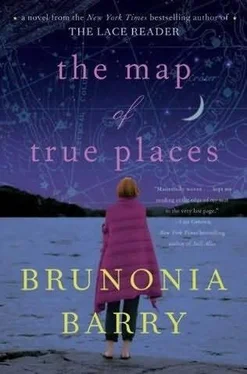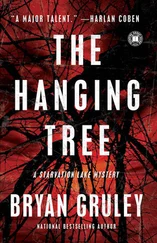For the last few years, Finch had been hoarding his medications. Anytime he took a fall and a doctor provided a painkiller, Finch filled all the prescriptions. When his primary-care physician did his annual checkup, Finch complained to him that he wasn’t sleeping, then hoarded the sleeping pills the doctor prescribed. When Melville called him on it, Finch got angry, claiming that Melville wouldn’t help him when the time came.
“I never said I wouldn’t help you,” Melville said.
“You never said you would.”
“We have years before that becomes an issue,” Melville said, persuading Finch to let him flush the pills, telling him that they would have long since expired by the time Finch got sick enough to want to use them.
They hadn’t talked about it since. But the previous summer, in 2003, they’d been up in Wolfeboro, New Hampshire, staying at a favorite bed-and-breakfast and doing a bit of antiquing in an old barn, when Finch found a small brown bottle among a collection of vintage bottles in the loft. He’d been looking at it, rolling around the little silver balls inside the amber glass, when Melville came up behind him.
“What’s that?” Melville asked.
Finch thought about it for a minute before answering.
“Strychnine,” Finch said. “They used to prescribe it as medicine.”
Melville was horrified. He knew well how Maureen had died. It had been a horrible death, unbearably painful, the kind of thing you wouldn’t wish on your worst enemy. He stared at the silver balls that Finch held in front of him.
“You’re not thinking of using that,” Melville said.
“It worked for my wife,” Finch said.
“I’ll help you,” Melville said, never wanting Finch to suffer.
Finch stood looking at him.
“Put that back,” Melville said, taking the bottle and setting it among the others. “Or better yet, tell the man to get rid of it. They shouldn’t leave such things around.”
The shopkeeper was approaching. Melville couldn’t stand it. He was close to crying. He walked outside and stood in the sun, willing himself to breathe.
MELVILLE WASN’T THERE TO SEE Finch slip the amber bottle into his pocket. It wasn’t that he didn’t believe Melville. He did. But he knew just how hard things were going to get, and he knew that Melville, when faced with it, might not be able to keep his hasty promise. The strychnine was Finch’s insurance policy.
ON MAY 20, 2004, MELVILLE took Finch back to the same bed-and-breakfast. Finch could no longer climb the stairs, so they had taken a first-floor room with a view of Lake Winnipesaukee. For the last few weeks, Finch had seemed confused. He’d forgotten several appointments and was having trouble finding things in the house. Melville had wondered if Finch was fighting something off; they’d had this problem before since he’d been diagnosed. Usually it flared up when he was about to get sick.
Melville wondered if he should postpone the weekend. He wanted the night he proposed to Finch to be perfect.
By Friday, Finch had not come down with anything. Though he still seemed confused, he was looking forward to the weekend, so Melville didn’t cancel the reservation.
They had dinner at Mise en Place, a favorite local bistro, then walked down to Lake Winnipesaukee to get some coffee. Unsteady on the way back, Finch took his arm. Melville watched as some looks came their way. Perhaps he should have picked Provincetown, Melville thought, or at least someplace in Massachusetts. But no, Finch had always loved Wolfeboro.
When they got back to the B and B, Finch took his pills. Melville had bought champagne, and he poured each of them a small glass, just enough for a toast.
“What’s this?” Finch asked, taking a seat next to Melville on the balcony.
From the bandstand an orchestra played “When I Fall in Love,” its sound echoing over the water. It couldn’t have been more perfect.
Melville didn’t get down on his knees. That was a different tradition. Instead he turned and said quietly to Finch. “Will you marry me?”
Finch looked at him sadly. Though everyone had been talking about the landmark legislation that had just happened in Massachusetts, Finch seemed to have removed himself from the importance of this historic event.
“It’s far too late for all that,” he said.
WHILE JESSINA WAS FEEDING Finch his breakfast, Zee walked down to Walgreens to fill his new prescription.
When she came back, the kitchen was in shambles, there was broken glass on the floor, and Jessina was carefully picking it up. Everything had been dumped on the counters-even the canisters had been emptied.
“What happened?” Zee asked.
“Finch did this,” Jessina said. “I went to check the laundry, and when I came back, he had trashed the place. He claims he was looking for something.”
He’s looking for his pills. The thought alarmed Zee, but she knew she was right. Though she usually kept the pills on the lazy Susan, she had begun to lock them in the upstairs room. She wasn’t about to tell Jessina, but she had been expecting this. “Where is he now?”
“He’s asleep in the den. I tried to clean the flour off of him, but I couldn’t get it all.” Jessina was clearly shaken.
“It’s okay,” Zee said.
She helped Jessina clean up the mess, then opened the new prescription that Mattei had written and woke Finch to give him the first dose of the antidepressant. She hoped to God that it would work.
ZEE DIDN’T CALL HAWK on Saturday, and she didn’t call him all day Sunday. By Sunday night he had decided that if she didn’t call him by the time he finished work, he’d walk over to see her. It was after 9:00 P.M. when he found himself at her door. He saw the light on in her upstairs window, but he no longer felt comfortable climbing the ivy. Instead he knocked on the kitchen door.
She unlocked the dead bolt and let him in.
“I’m sorry I didn’t call,” she said. “I meant to.”
Hawk eased the door shut behind him, not wanting to let it slam and wake Finch.
“My father is having trouble,” she said.
“What kind of trouble?”
“Severe depression.”
Hawk could certainly understand. “I’m sorry,” he said. “Is there anything I can do?”
“No,” she said. “But thanks for asking.”
There was a long silence.
“I’m glad you came by,” she said. “We need to talk.”
She motioned him to the kitchen table, then took a seat across from him.
He bumped the table as he sat, setting the lazy Susan in motion. He reached out and stilled it. “You look as if you haven’t been sleeping much,” he said.
“I’m a mess,” she said, suddenly self-conscious about her appearance.
“You look beautiful,” he said. “Just a little tired.”
“Weary,” she said.
“Good word.”
They sat in silence for a minute.
“I came back here to take care of my father,” she said.
“Yes.”
“And I’m not doing a very good job.”
“Because of me.” He already knew it was where the conversation was going.
“No,” she said quickly. “Because I’ve been having far too much fun with you.”
“We’ve only been on the one date,” he said, trying to lighten the mood.
“Finch needs to be watched every minute,” she said. “Especially right now.”
He didn’t say anything.
“This isn’t going to work out,” she said.
“What isn’t going to work out?” he asked.
“This…Us.”
“Because of Finch?”
“I’m afraid he might try to hurt himself.”
Hawk understood only too well what that must be doing to her. “I’m sorry,” he said.
Читать дальше
Конец ознакомительного отрывка
Купить книгу












